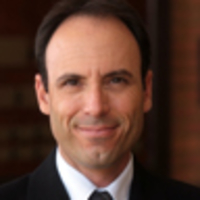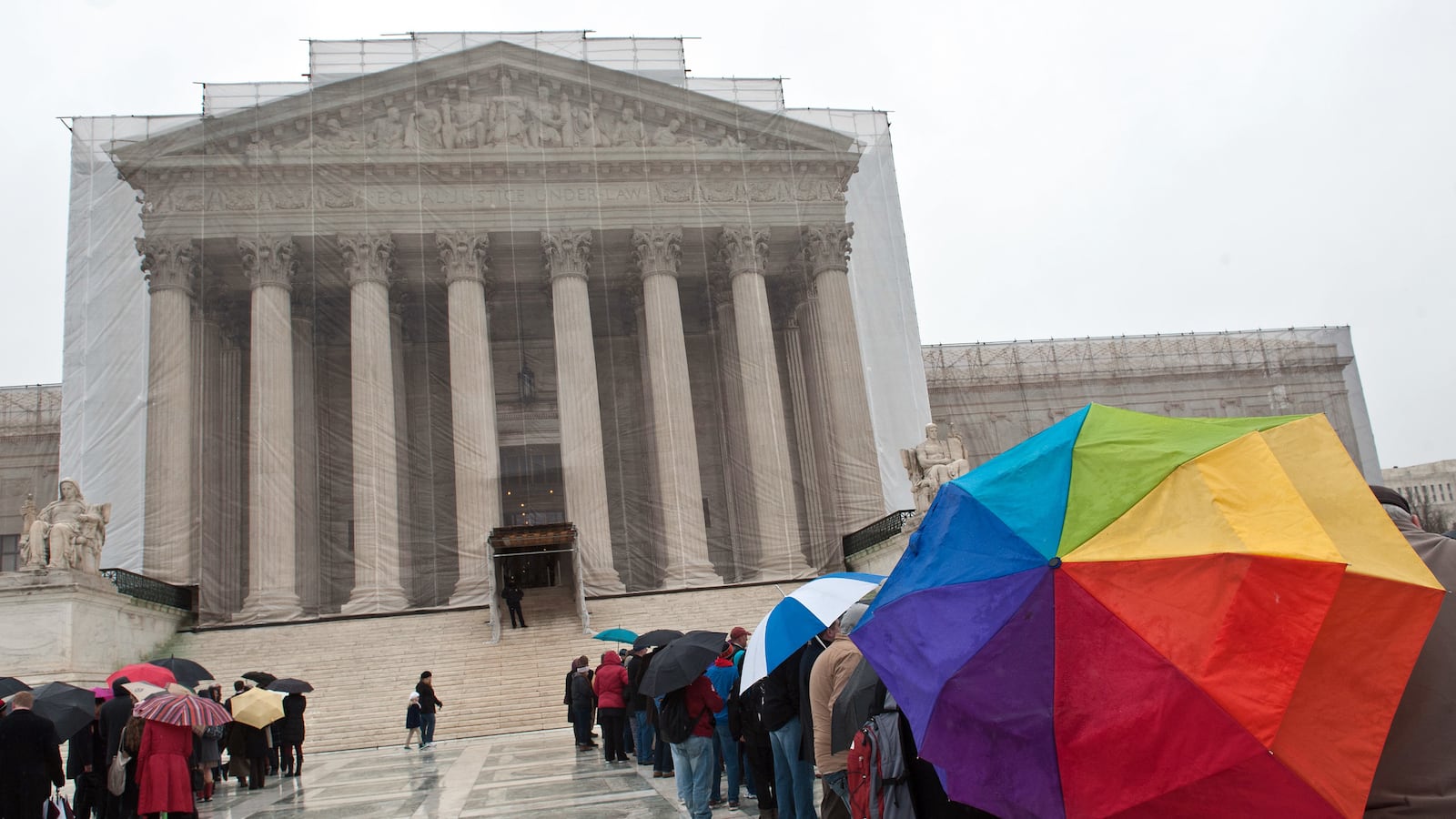In Arthurian legend, the sorceress Morgan Le Fay lured sailors to their death by using magic to create false yet alluring images of fairy castles out at sea. She was said to be capable of enticing even the most experienced ship captain to veer from his course and meet an untimely end. Her mirages offer a valuable lesson for prognosticators and legal commentators weighing every word spoken by the justices in the Supreme Court hearings over gay marriage this week.

Oral argument can be a window into the court and its deliberations. Justices hostile to a lawyer’s argument often reveal their disagreement through penetrating—sometimes devastating—questions, while a friendly justice can offer a struggling advocate a helping hand. Court watchers eager to get an early lead on how the justices will decide the most important questions of the day look to these hints, analyzing each change in tone and expression of frustration.
Even before the beginning of the marriage hearings, people have been reading the clues. On Monday, reports circulated that the lesbian cousin of Chief Justice John Roberts was attending one of the arguments as his guest. Was this is a sign that Roberts will rule in favor of gay rights? The cousin was hopeful: “I believe he sees where the tide is going,” she said. “I absolutely trust that he will go in a good direction.”
The public usually looks to experts for such glimpses of the future. The phenomenon is hardly unique to high-profile cases. ESPN thrives as the wellspring of predictions for how today’s big sporting event will turn out. From the Supreme Court to the Super Bowl, everyone wants to know what’s going to happen; for many, it’s even more important than watching the game itself.
Yet unlike a sporting event, whose outcome is open for all to see the moment the game is over, Supreme Court arguments conclude with no edification. The justices will retire behind the red velvet curtain and cast their votes in secret, though even then the outcome is uncertain. Justices are allowed to change their votes anytime before the written opinion in the case is released to the public—and they often do. The court’s swing justice, Anthony Kennedy, once voted to effectively overturn Roe v. Wade before changing his vote and saving that landmark decision on women’s rights. Gay marriage is a similar type of issue: hotly controversial, profoundly contested, and one that may shape a justice’s legacy.
Because the Supreme Court is the tightest ship in town—leaks are nearly unheard of, especially before a decision is officially handed down—anyone wanting to know how the court will rule has little more than oral argument to rely upon. Yet oral argument in the Supreme Court can be as misleading as the sorceress’s mirage. Like a sailor surrounded by the vast emptiness of the sea, court watchers may find their desire to know has led them in a perilous direction. One need only ask noted Supreme Court expert Jeffrey Toobin.
It was a year ago this week that the justices heard arguments over the constitutionality of Obamacare, the last time the public was hanging on every word uttered in the hallowed Supreme Court. Solicitor General Donald Verrilli, defending the health-care law, struggled with his opening remarks and, in many ways, his presentation seemed to go downhill from there. Justice after justice asked questions that suggested they didn’t agree with Verrilli’s arguments. Toobin went on CNN and predicted that Obamacare would be invalidated. “This was a train wreck for the Obama administration,” Toobin said. The law, he said, was in “grave, grave trouble.”
We all know how that case came out.
In fairness to Toobin, his conclusion was based on the statements and questions of the justices themselves. A majority of them did appear to be lined up against Obamacare and skeptical of the solicitor general’s claims. Given the evidence at hand, Toobin’s prediction was a perfectly reasonable one. Predictions on Intrade agreed with Toobin, and up to 80 percent were betting the law would be struck down.
That’s exactly why we should be cautious in predicting how the court will rule based on oral argument. The justices are not performing for the public, and signaling to the public how they will rule is furthest from their minds. They are engaged in a detailed intellectual exploration of often ambiguous law, dealing with the most complicated issues. Indeed, they may be trying to figure out how to rule themselves, searching for an answer rather than informing the advocates of their already made-up minds.
On the one hand, Supreme Court predictions may just be a harmless lawyer’s pastime. The predictions don’t affect the justices themselves, and the litigants who ultimately win don’t receive any less a remedy. Yet there can be adverse consequences. The fact that so many experts like Toobin were saying Obamacare was going down probably helped spur CNN and Fox News to jump the gun on the day the decision was finally announced—with embarrassing results.
So as we read about the Supreme Court’s hearings in the gay marriage cases this week, beware of being led astray by the inevitable commentary picking apart the justices’ every word. Still, like the sailors said to fall for Morgan Le Fay’s mirages, we might not be able to help ourselves.






